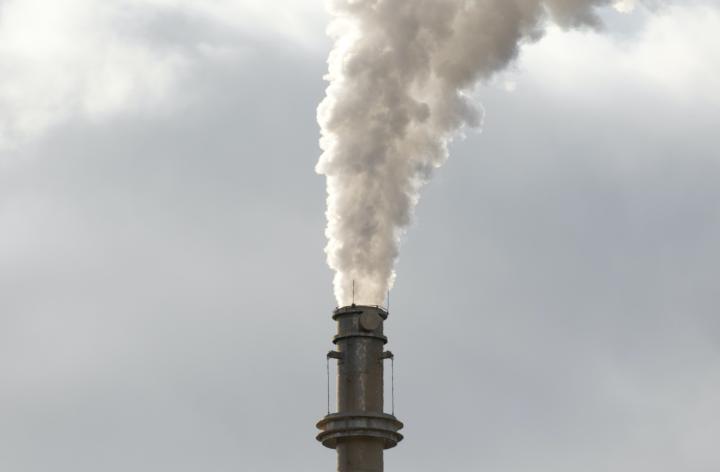Clean Air Day is the UK's largest air pollution campaign, promoted by Environmental Protection Scotland working in partnership with Global Action Plan. The purpose of Clean Air Day is to increase public awareness of the dangers posed by pollutants and encourage people to reduce their own impact on the environment. As support grows for the movement, the goal is that the Government will make the changes required to effectively tackle the problem.

The World Health Organisation (WHO) considers air pollution to be the largest environmental health risk we face today and has classified it as a public health emergency. They report that 9 out of 10 people in the world are breathing air that exceeds WHO recommended limits and leads to the premature deaths of 6.7 million people worldwide each year. Global Action Plan report that air pollution causes up to 36,000 deaths in the UK each year due to heart and lung disease, asthma and strokes.
Despite these high numbers, in December 2020, 9-year-old Ella Adoo-Kissi-Debrah became the first person in the UK to have "air pollution exposure" listed on her death certificate as a contributory cause of her death. From a young age Ella suffered from severe asthma and, tragically, she died on 15 February 2013. An initial inquest into her death in 2014 concluded that Ella died from acute respiratory failure caused by severe asthma.
In 2019, Professor Stephen Holgate produced new evidence suggesting that air pollution had contributed to her death. On this basis, the High Court ordered a fresh inquest and ultimately the Coroner agreed that air pollution was a significant contributory factor to both the induction and exacerbation of Ella’s asthma. This was due to exposure to Nitrogen Dioxide and Particulate Matter in excess of WHO Guidelines from traffic emissions when she lived 25m from the South Circular Road in Lewisham, south-east London between 2010 and 2013. It was ruled that Ella’s mother was not informed about the health risks of pollution and the potential impact on Ella given her asthma. Ultimately, the Court found that had Ella’s mother been given this information, she would have taken steps which may have prevented Ella’s death.
Whilst this was the first case of its kind, it is unlikely to be the last. According to Friends of the Earth, Hope Street in Glasgow and St John's Road in Edinburgh are the streets in Scotland with nitrogen dioxide, which is the toxic gas caused by burning fossil fuels in car engines. Atholl Street in Perth and High Street in Ayr are the streets in Scotland most polluted with particulate matter, which is caused by things like soot from engines and dust from road surfaces. The risks caused by pollutants are now known. There are recent studies suggesting that exposure increases the risk of other types of cancer and neurological illnesses, including dementia. Given the Government and local councils are aware of the dangerously high levels of pollutants on our streets and the dangers these pollutants pose, the onus is on them to take action to reduce them by putting in place regulations and guidelines for councils and businesses to follow to protect the public and employees.
I have acted on behalf of many families who have lost loved ones due to occupational exposure to asbestos. In these cases, many workers breathed in dangerous particles which were in the air whilst they were carrying out their jobs. This led to devastating consequences and has impacted many families. The increase of knowledge of the dangers of working with asbestos in the 1950s and 1960s led to safer worker conditions for these workers.
Similarly, with the increased knowledge of the risks of air pollution, now is the crucial time for central and local government to put in place effective mitigation strategies to protect the public. Employers should also be considering steps which they can take to protect their employees to eliminate or mitigate the danger if they are required to work round pollutants for long periods, perhaps by considering substituting diesel with a safer fuel, using electric vehicles or changing working practices.
An increase in regulation, along with a more scientific understanding of the consequences of exposure to air pollution, will likely result in an increase in litigation. Whilst the vehicle emissions scandal led to one of the first group actions being brought in Scotland, there have yet to be any judgments on personal injury claims brought against polluters. This means that there is no guidance on whether a defender will be held liable for injuries and losses caused by exposure to unsafe levels of air pollution. In such a case, it is likely the biggest hurdle a claimant would face would be firstly proving negligence on the part of the defender, and secondly proving causation, i.e. showing that the pollution caused the injury. A defender would likely argue that any number of pollutants or contributors to pollutants could have caused the injury, and it is unlikely air pollution would be solely responsible. It is not clear what level of contribution to pollution a defender would require to be responsible for to be held liable. It may be that a traditional analysis of causation is not appropriate, particularly when considering public policy and the possibility of opening the floodgates of litigation in this area. Whatever approach is taken, this will be an evolving area of the law and we will keep an eye on any decisions with interest.
In the meantime, the Clean Air campaign encourages everyone to think about how much they contribute to air pollution. The Clean Air Hub has been set up with numerous resources, including a Clean Air Planner to help reduce exposure to air pollution.
The content of this webpage is for information only and is not intended to be construed as legal advice and should not be treated as a substitute for specific advice. Morton Fraser LLP accepts no responsibility for the content of any third party website to which this webpage refers. Morton Fraser LLP is authorised and regulated by the Financial Conduct Authority.










